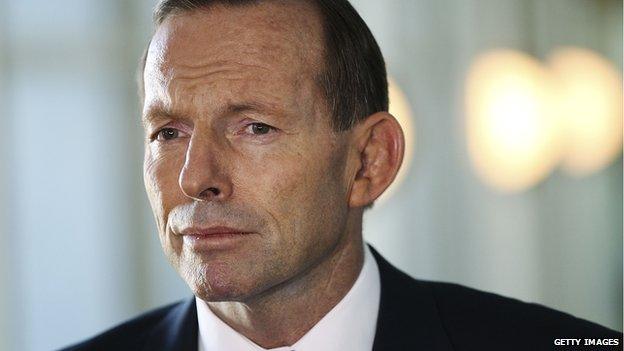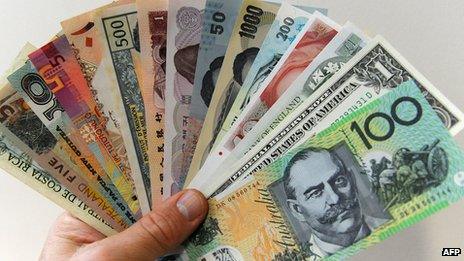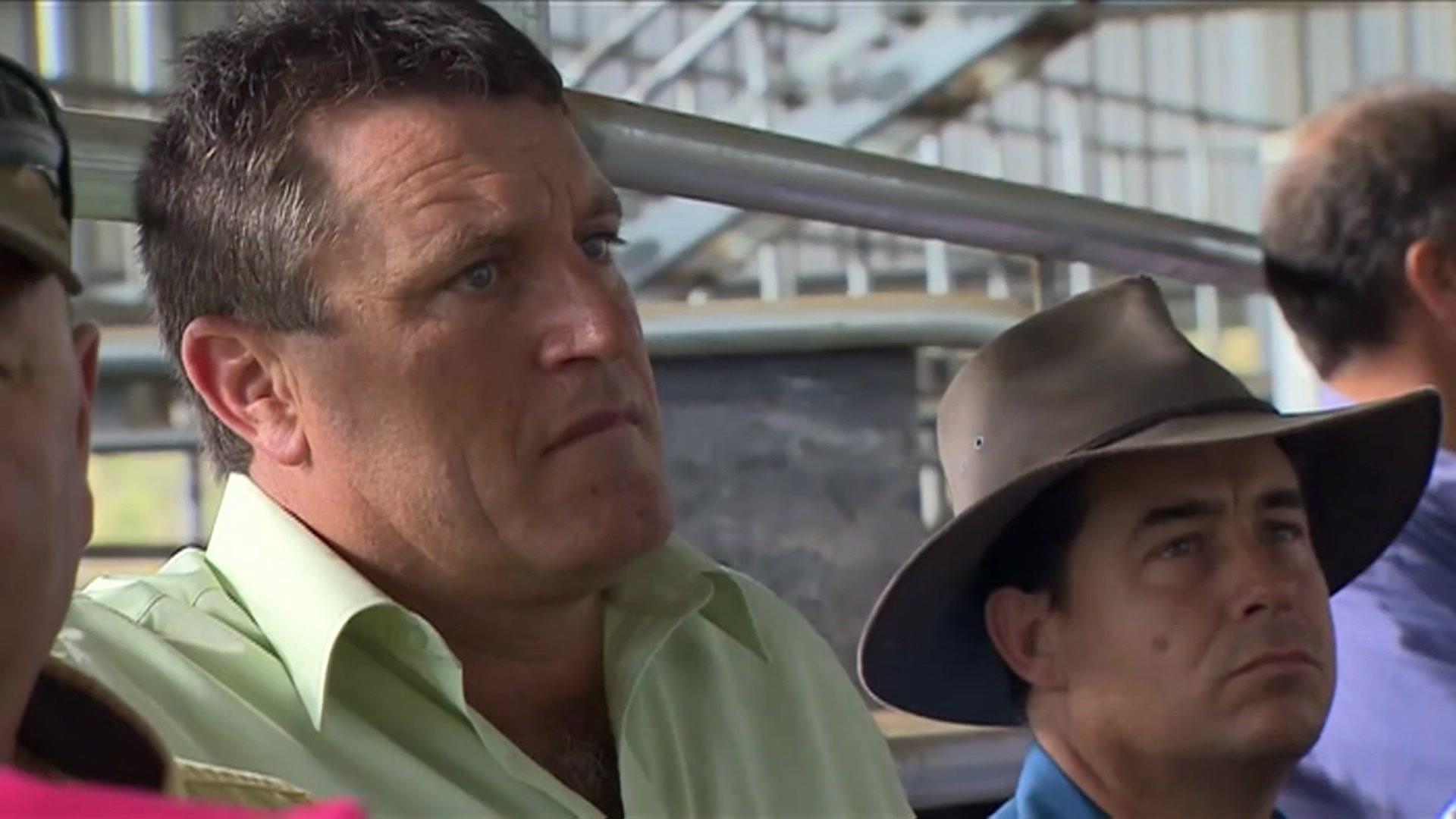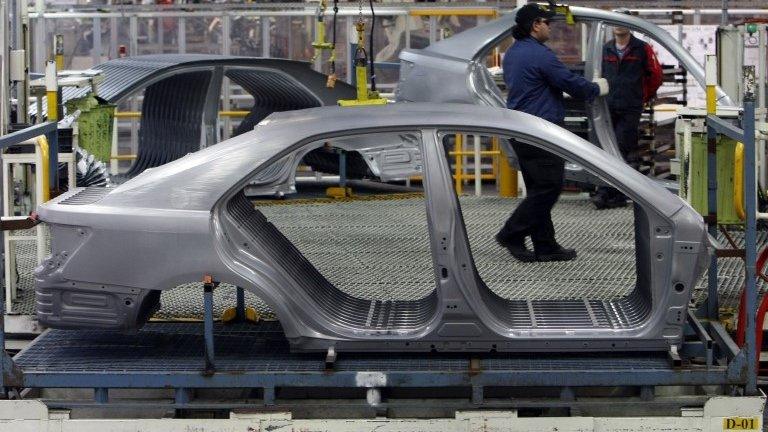Can Abbott tackle Australia's 'budget emergency'?
- Published

Australia's Prime Minister Tony Abbott has been labelled the Demolition Man for his cost-cutting plans
"Has Tony Abbott gone mad?" one newspaper screams, while another queries: "What budget emergency?"
These headlines in the Sydney Morning Herald, external and the Australian Financial Review, external are just some of the running commentary that has come out ahead of Australia's much-anticipated budget, which is to be announced on Tuesday.
It is expected to contain some of the harshest spending cuts in years as the newly elected conservative government led by Prime Minister Tony Abbott attempts to balance the nation's books.
Tax hikes for the rich, cuts to welfare and the raising of the retirement age to 70 are expected to be included in the latest economic blueprint.
On the other side of the ledger, massive nation building infrastructure projects are likely to be announced.
Overall though, the government is looking to save billions of dollars to tackle Australia's ballooning budget deficit, which is forecast to reach 123 billion Australian dollars ($115bn; £68bn) over four years.
'Demolition man'
Australia has a budget deficit of around 3% of gross domestic product (GDP), while public debt is less than 20% of GDP.
That is far less than what Greece, the United States and much of Europe have wrestled with in recent years.
However, in a resource-rich country that had got used to running a surplus in the years up until the financial crisis hit, it has become a source of concern, and Mr Abbott has indicated that all Australians will have to share the pain to guarantee future prosperity.

The Australian dollar is one of the world's best-performing currencies
"We will honour the commitment we gave to the Australian people pre-election to get the budget back under control, but we will do it in ways that are fair," he has said.
However, he has come under criticism for backtracking on a key election promise.
A year ago, the conservative leader pledged there would be "no nasty surprises" should he win last September's election.
He also blamed "a budget emergency" on the Labor government he went on to comprehensively defeat. One year later, Mr Abbott has again insisted the nation's accounts are in need of urgent repair.
His plans to hit high-income earners with a deficit tax have been derided by members of his own Liberal-National coalition as "political suicide" because it would smash a campaign promise.
There was even talk of a party-room revolt in Canberra, external by angry colleagues, forced to confront the wrath of angry voters back home in their constituencies, while former Labor treasurer Wayne Swan has called him a "demolition man".
But senior ministers have stressed that an "immediate special effort" in the form of a temporary tax hike for the rich was required to bring the nation's accounts back into the black.
'Budget problem'
Some economists believe that Australia's fiscal problems are being overstated.

Prof Chris Evans says the budget crisis may be somewhat manufactured
"It is right to say Australia has a budget problem. We've had the biggest boom in our history," Shane Oliver, chief economist at wealth management company AMP in Sydney, told the BBC.
"We should be running budget surpluses now, not budget deficits, so there is a problem there but we don't have the sort of budget emergency that many other countries have had over the last few years."
University of New South Wales Australian School of Business Professor Chris Evans also believes the government has exaggerated the nation's economic ills.
"In a sense it is a bit of a manufactured crisis, which is politically convenient for an incoming government," he said.
"They can get all of the nasties out of the way and then spend the next two years giving back what they took in a pretty harsh budget," Mr Evans explained.
The average Australian taxpayer is also expecting grim news when Treasurer Joe Hockey addresses parliament on Tuesday evening.
"I think it will be brutal, but that's what the politicians need to do to keep themselves in a job," said one man at Sydney's Collaroy Beach.
Ultimately, Mr Abbott may have enough leverage to push through fiscal reforms given this is his first term in office, which is when governments traditionally have maximum political capital.
But whatever steps he takes with the nation's finances, it seems Australia's newspapers will have plenty to write about.
- Published5 March 2014

- Published12 February 2014

- Published4 September 2013
